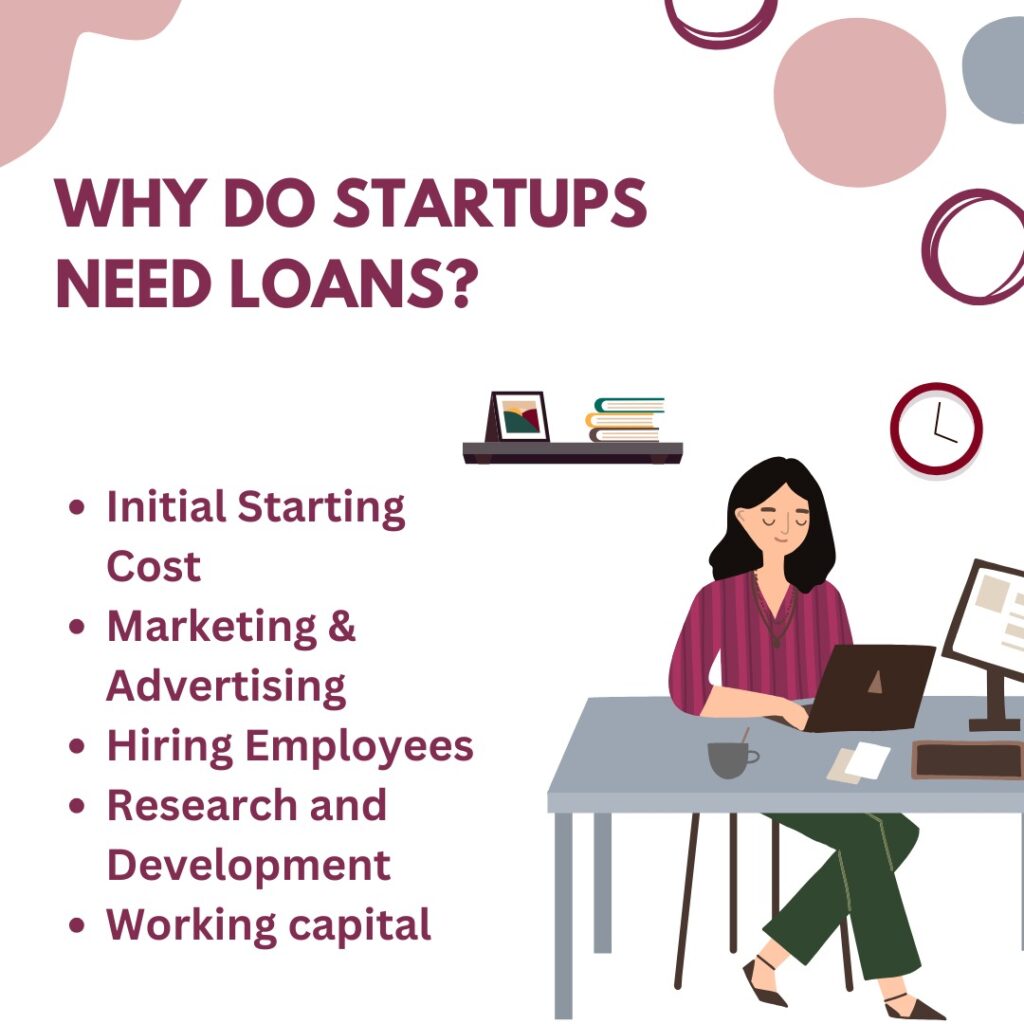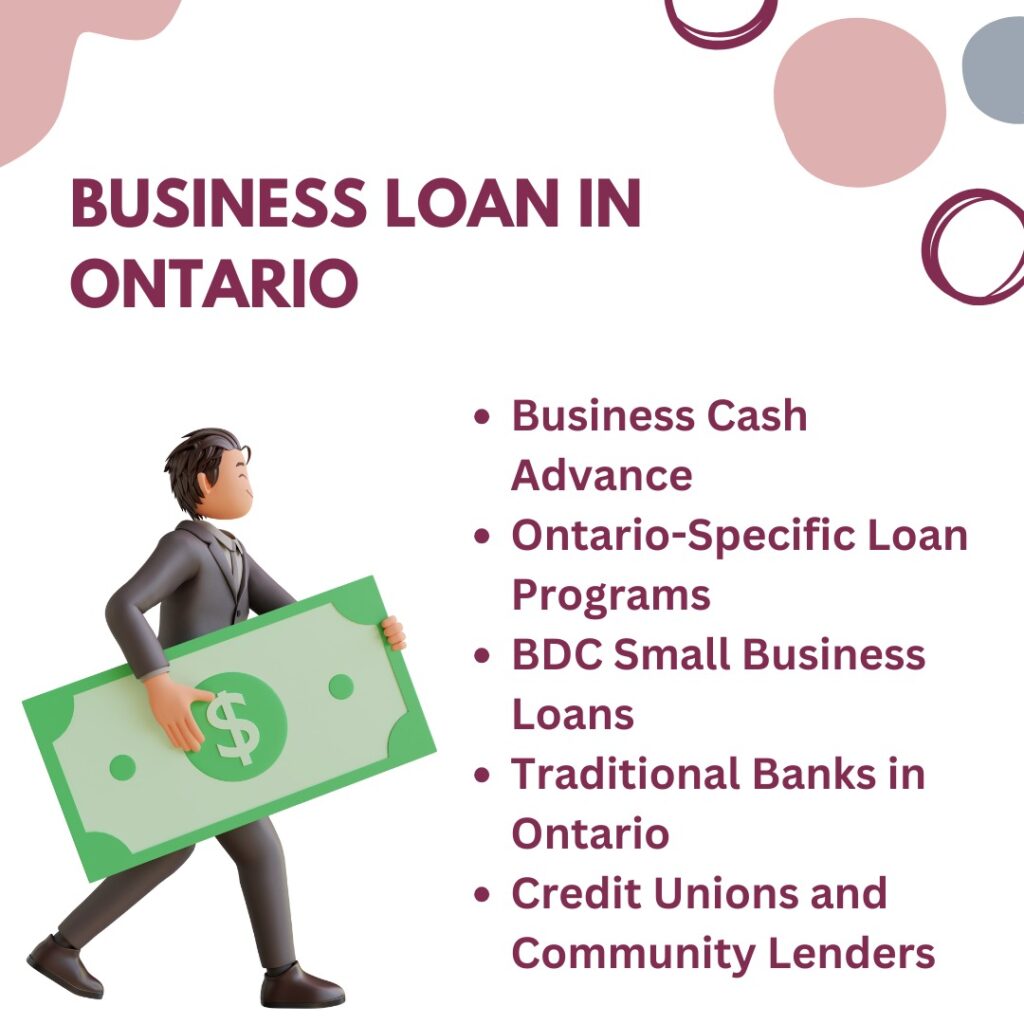Starting a business is an exciting adventure, but it often requires financing to make that dream a reality. For Canadian entrepreneurs, there are several avenues to secure startup business loans, and one great option to consider is Business Cash Advance. Understanding the available financing sources can help simplify the process, allowing you to secure the funds you need without the usual hassle.
Here, we will explain how to obtain a loan to start a business in Canada, highlight options for business loans in Ontario, and provide insights into BDC small business loans, including Business Cash Advance as an alternative.
Why Do Startups Need Loans?
A loan structured well can give you the financial backup you need to focus on growing without always taking from personal savings. Loans are provided to start-ups for:
- Initial Starting Cost: furniture, equipment, inventory, office space, or technology.
- Marketing & Advertising: to promote and attract customers.
- Hiring Employees: To build up qualified staff for your business.
- Research and Development: logical development in a product or service offer.
- Working capital: running smooth operations for the early stages.

How to Get a Loan to Start a Business in Canada
Securing a business loan in Canada requires careful planning. Follow these steps:
1. Develop a Business Plan
A detailed business plan is crucial. You should have a clear description of your business idea with financial projections and budgets. You should have knowledge about your competitors, market analysis, and research about it.
Lenders will want to see that you have a viable business plan before approving your loan.
2. Understand Your Credit Score
It has been noted that a credit score is one of the most critical parts of Canada for loan approvals. High credit scores tend to grant you a chance of getting better loans. If it is too low, it is advisable to improve it by doing the following:
- Paying bills on time.
- Reducing existing debt.
- Checking for errors in your credit report.
3. Explore Different Loan Options
Canada offers various loan programs for startups, including:
- Government-Backed Loans: Programs such as the Canada Small Business Financing Program (CSBFP) generally facilitate a startup to obtain financing with less risk to the lender.
- BDC Small Business Loan: Business Development Bank of Canada (BDC) offers flexible loans that meet the needs of startups.
- Traditional Bank Loans: Many of the Canadian banks operating in Ontario provide business loans.
Business Cash Advwance:
A great alternative for businesses that may not qualify for traditional loans. Business Cash Advance offers quick and flexible funding solutions.
4. Required Documents
Prepare all necessary documents, including:
- Business plan.
- Personal and business financial statements.
- Tax returns.
- Proof of collateral (if required).
- Bank statements.
5. Choose the Right Lender
Business Cash Advance may be a good option for your businesses if you are looking for flexibility. It helps to research lenders to find the one that suits your business better. When choosing a lender, consider interest rates, repayment terms, and eligibility requirements.
6. Submit Your Application
Have a complete and correct application. Make sure that everything is double-checked to avoid any delays.
Business Cash Advance Helps in Startup Business Loans
Business Cash Advance offers a financing solution for small businesses in Canada. Unlike traditional loans, Business Cash Advance provides quick access to funds based on your business’s daily credit card sales, making it ideal for entrepreneurs who need fast capital without the lengthy approval process. This type of funding allows businesses to repay based on their sales volume, ensuring that payments adjust to your cash flow. With minimal paperwork and a streamlined application process, Business Cash Advance is a great option for businesses seeking a hassle-free way to secure the financial support they need for growth and expansion.
Business Loan in Ontario
Ontario is a hub for small businesses, and the options for loans are many. Here are some of the major ones:
Business Cash Advance
If you need quick funding, Business Cash Advance may provide a faster alternative to traditional loans.
Ontario-Specific Loan Programs
The province has been supporting many startup initiatives in Ontario by running several programs. Check with the local economic development agencies on what is available.
BDC Small Business Loans
BDC does offer loans directed to start-ups by providing a flexible term and inclusion of some support services to succeed in business.
Traditional Banks in Ontario
There are business loan programs by major banks such as RBC, TD, or Scotiabank tailored specifically for Ontario entrepreneurs.
Credit Unions and Community Lenders
These financial services institutions often offer loans at very competitive rates with individualized services.

Tips for Securing a Business Loan in Canada
- If you are a new entrepreneur, then you have to think of applying for a smaller loan. Successfully taking care of these small loans can be helpful in creating faith with lenders.
- Use federal and provincial programs such as CSBFP to count on to lighten your weight heavily.
- Establish good relations with your lender. A strong relationship can improve your chances of getting the loan approved and even provide better loan terms.
- If possible, put up collateral for the secured loan. This minimizes lender risks and, hence, reduces the interest rate.
- You might consider seeking the help of a financial advisor to have a better understanding of the options available while preparing a strong application.
By considering Business Cash Advance as an option, you can find a loan that suits your business needs, whether you’re starting or growing your business in Canada.
Frequently Asked Questions
- What are the requirements for a startup business loan?
To get a startup business loan, you usually need a solid business plan, good credit, and some basic documents like your financial statements, tax returns, and sometimes proof of collateral. Lenders want to see that your business idea is clear and that you can pay back the loan. - Is it worth taking out a loan to start a business?
Yes, it can be worth it if you need funds to cover your startup costs like equipment, inventory, or marketing. A loan can help you get your business going without draining your personal savings. Just make sure you can manage the loan payments. - What type of loan would I need to start a business?
For starting a business, you might need a small business loan, a business line of credit, or a business cash advance. The right type depends on your needs—whether you want a lump sum or access to ongoing funds. - How much is the monthly payment for a $100k business loan?
The monthly payment for a $100k loan depends on the loan terms, like the interest rate and how long you have to repay it. For example, a 5-year loan with a 7% interest rate might cost around $2,000 to $2,500 per month, but it varies. - Why is it so hard to get a startup business loan?
It can be hard because lenders want to be sure you can repay the loan. Startups are riskier since they don’t have a long history of sales or profits. But if you have a solid business plan, good credit, and some collateral, it can be easier to get approved. - What is the best reason to say when applying for a loan?
The best reason is to explain clearly how the loan will help your business grow. For example, you might need it for buying equipment, hiring employees, or increasing marketing efforts. Showing how the loan will help your business succeed makes lenders more likely to approve it. - What is the easiest business loan to get?
The easiest loans to get are typically business cash advances or loans from alternative lenders. These often have fewer requirements and a quicker approval process compared to traditional bank loans. However, they might come with higher interest rates.









